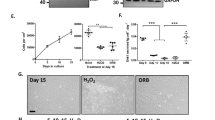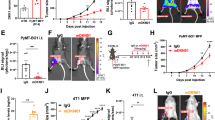Abstract
Canonical Wnt signaling is an osteo-inductive signal that promotes bone repair through acceleration of osteogenic differentiation by progenitors. Dkk-1 is a secreted inhibitor of canonical Wnt signaling and thus inhibits osteogenesis. To examine a potential osteo-inhibitory role of Dkk-1 in osteosarcoma (OS), we measured serum Dkk-1 in pediatric patients with OS (median age, 13.4 years) and found it to be significantly elevated. We also found that Dkk-1 was maximally expressed by the OS cells at the tumor periphery and in vitro Dkk-1 and RANKL are co-expressed by rapidly proliferating OS cells. Both Dkk-1 and conditioned media from OS cells reduces osteogenesis by human mesenchymal cells and by immuno-depletion of Dkk-1, or by adding a GSK3[beta] inhibitor, the effects of Dkk-1 were attenuated. In mice, we found that the expression of Dkk-1 from implanted tumors was similar to the human tumor biopsies in that human Dkk-1 was present in the serum of recipient animals. These data demonstrate that systemic levels of Dkk-1 are elevated in osteosarcoma. Furthermore, the expression of Dkk-1 by the OS cells at the periphery of the tumor probably contributes to its expansion by inhibiting repair of the surrounding bone. These data demonstrate that Dkk-1 may serve as a prognostic or diagnostic marker for evaluation of OS and furthermore, immuno-depletion of Dkk-1 or administration of GSK3[beta] inhibitors could represent an adjunct therapy for this disease.
Similar content being viewed by others
Article PDF
Author information
Authors and Affiliations
Rights and permissions
About this article
Cite this article
Gregory, C., Lee, N., Smolarz, A. et al. A potential role for Dkk-1 in the pathogenesis of osteosarcoma predicts novel diagnostic and treatment strategies.. Nat Prec (2007). https://doi.org/10.1038/npre.2007.130.1
Received:
Accepted:
Published:
DOI: https://doi.org/10.1038/npre.2007.130.1



